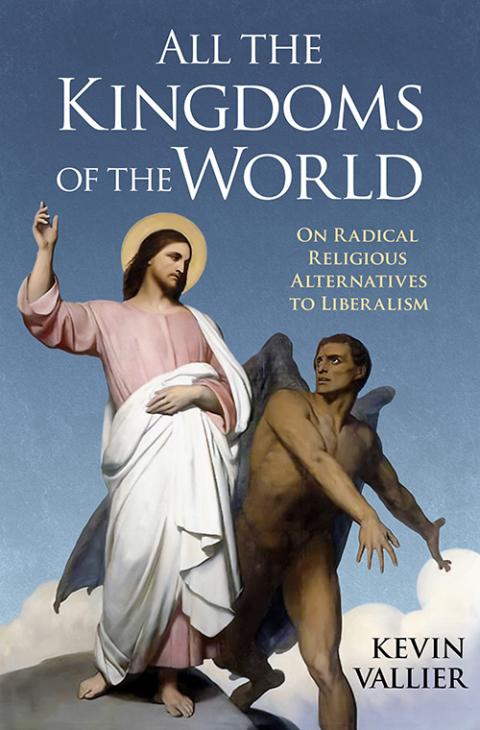Last week, I began my review of Kevin Vallier's book about Catholic integralism, All the Kingdoms of the World: On Radical Religious Alternatives to Liberalism. Today, I will finish my examination of this fascinating and exasperating book.
The chapter on "Transition" exemplifies this problem with the book, the precise and thoughtful analysis of what is, in the end, insanity. Vallier makes the argument that the transition from a liberal state to an integralist one would require the integralists to violate the very Catholic moral norms they claim to want to embed into the body politic.
He notes that the value of democracy, which has become central to Catholic social doctrine in the post-World-War-II era, is abandoned: "Integration from within attempts state capture," he writes. "The goal? Install integralists in powerful positions in a liberal nation-state. As liberalism falls, integralists seize the state and turn it toward religious objectives."

In addressing Harvard University's Adrian Vermeule's approach to transition specifically, Vallier observes:
As Vermeule so evocatively claims, we must "sear the liberal faith with hot irons." It must not rise again. Only a strong state combined with a strong church can complete this urgent task. Vermeulean protectors must become conquerors. They must rule with an iron rod. And, so, however much Vermeule wants to avoid coercion, he is stuck with it. Integralists must exercise hard power.
Images of the Jan. 6 insurrection flood the mind, only led by the cross and nationwide. It is too horrific to contemplate, and Vallier is right to insist we must not avert our eyes.
In this same chapter, Vallier provides a useful, concise history of the development of the "thesis-hypothesis" theological framing of church-state relations. In an effort to "soften the blow" of Pope Pius IX's condemnation of liberal regimes, the great Bishop Félix Dupanloup of Orleans, France, argued that the pope had articulated the "ideal" situation of the state supporting the Catholic Church as a "thesis," but that the "hypothesis" governed situations where Catholics were in the minority or where, for particular reasons, the ideal could not be realized. In the latter situation, such as in the United States, religious liberty could be embraced.
Vallier goes on to note, "This distinction, designed to save liberalism, later became an obstacle." This is a useful reminder that we ought not abstract issues from the times in which they were debated.
Vallier makes many other intelligent, incisive remarks about a variety of topics in his treatment of "Transition," exposing flaws in the integralist approach.
No comments:
Post a Comment